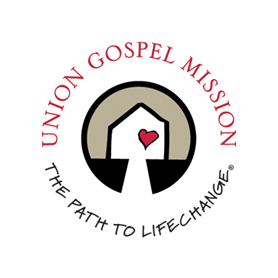University of Oregon Project Provides Insight into Homelessness
 Having been a faculty member at the University of Oregon’s School of Journalism & Communication for more than six (6) years, I have participated in a number of incredible community-based experiences and projects. In 2008, when I first designed J410 – Advanced Non-Profit Campaigns – the goals were to raise awareness about the non-profit community in Portland, connect senior public relations & advertising students with the needs of this community and to support worthwhile social programs. Each term the course is offered, we work with a different non-profit organization to help them reach their communication goals. During the Fall 2013 term we are partnering with the Union Gospel Mission (UGM) in downtown Portland.
Having been a faculty member at the University of Oregon’s School of Journalism & Communication for more than six (6) years, I have participated in a number of incredible community-based experiences and projects. In 2008, when I first designed J410 – Advanced Non-Profit Campaigns – the goals were to raise awareness about the non-profit community in Portland, connect senior public relations & advertising students with the needs of this community and to support worthwhile social programs. Each term the course is offered, we work with a different non-profit organization to help them reach their communication goals. During the Fall 2013 term we are partnering with the Union Gospel Mission (UGM) in downtown Portland.
Last week, J410 students (and myself) helped conduct a survey designed to capture some of the significant statistics about the population who utilize UGM resources. As guests entered the UGM’s kitchen and meal area, they were asked to participate in a short facilitated survey. The data collected was both heartbreaking and hopeful.
In our short time, we learned that homelessness is not limited to certain people, that it transcends race, gender, age and education. Homelessness is not limited to veterans or the mentally ill as popular media might lead one to believe, although both groups were reflected. Sadly, we also learned that violence in the street is more prevalent among the homeless than any of us would ever wish.
In many cases it was evident that homelessness was tied closely to alcohol or drug abuse, but homelessness was just as likely to be a result of bad luck or a single, poor choice, made months, or even years, before.
Many of the survey participants were also willing to share a little bit of their story, to give us a brief glimpse into their lives. Surprisingly, very few of the participants shared a deep sadness or painful anger at their situation, more commonly they spoke of hope, of positive changes to soon be enacted, of humor at how our many individual paths intertwine and a deep sense of thankfulness that resources, such as the UGM, are available without judgment or contempt.
Being able to fully immerse my class and myself into the daily activities of our non-profit clients is what makes J410 different than most classroom-based courses. We already have a better understanding about UGM, their client population and how hard everyone at UGM works to fulfill their admirable (and worthwhile) goals of “feeding the hungry, restoring the addict, and loving our neighbor.”
We enthusiastically look forward to assisting UGM this term.
Josh Netzer
SOJC Faculty
